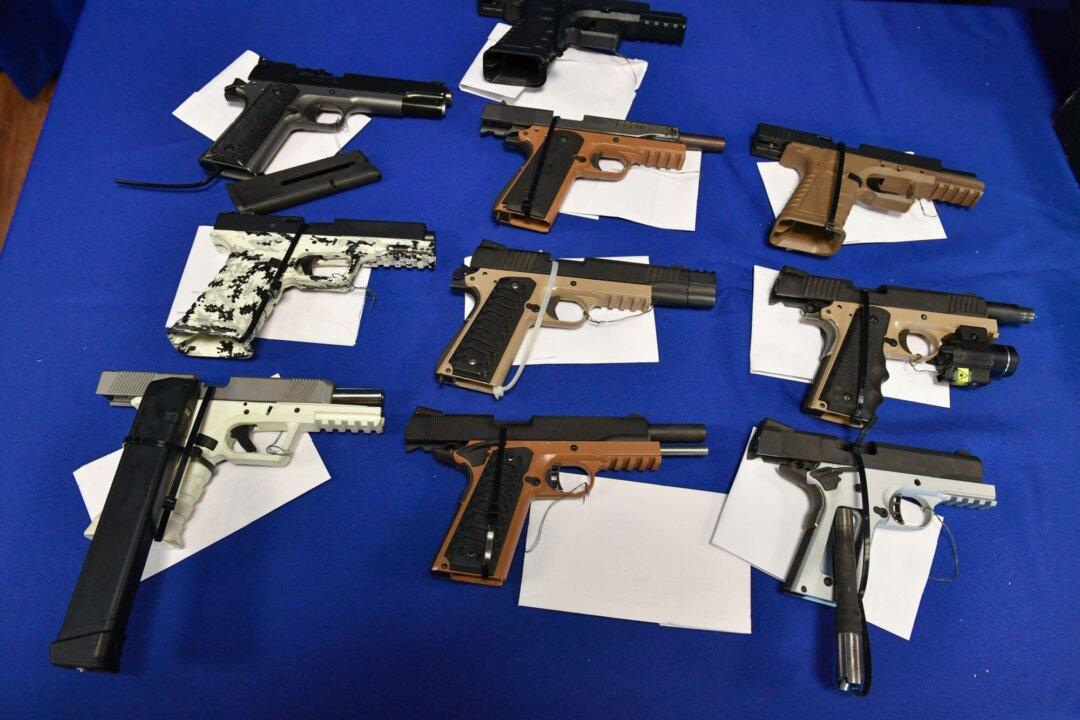President Joe Biden’s legal challenge targeting so-called “ghost guns” went into effect on Aug. 24, focusing on curbing the proliferation of privately assembled firearms.
The rules, which the White House posted in April, are designed to prevent unlicensed guns from being sold to convicted felons and other ineligible buyers by making clear that retailers run background checks before selling kits that contain parts for someone to assemble a gun, a similar rule to commercially made firearms.





